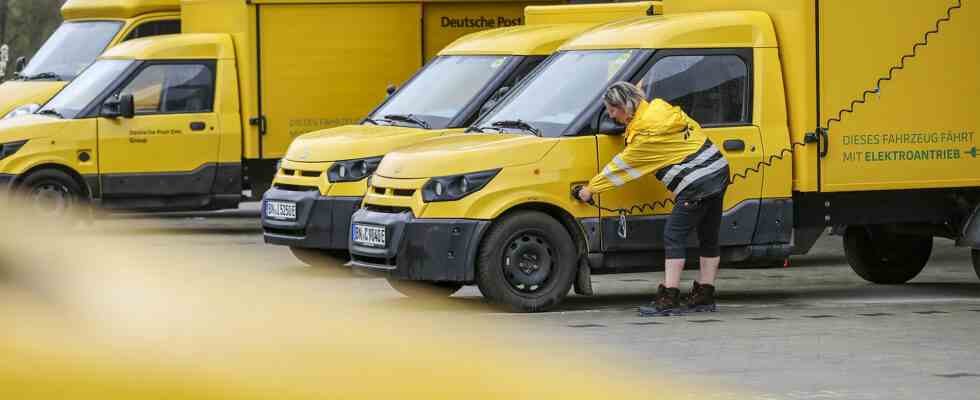Status: 07.03.2023 10:40 a.m
Deutsche Post is calling for labeling to inform consumers about CO2 emissions when sending parcels. Your competitors, but also environmental organizations see the initiative critically.
Deutsche Post would like parcel service providers to be obliged to report the climate footprint of parcel delivery. This should make the CO2 emissions that occur during transport transparent to consumers.
Similar to food labeling
According to Ole Nordhoff, Head of Division at Deutsche Post, one can orientate oneself to regulations in food sales such as animal husbandry classes for meat products or the nutritional value logo Nutri-Score. “We can well imagine something comparable in the parcel industry,” Nordhoff told the dpa news agency.
With its demand, the postal service is also making a move towards the postal law reform, which is to be decided by the end of the year. A key issues paper on the reform states that more transparency and comparability should also be created for users of postal services with regard to the CO2 footprint. So far, consumers have not had an overview of the carbon dioxide emissions per parcel.
Suggestion for your own benefit?
However, Deutsche Post should certainly benefit from such a labeling requirement for business purposes. The group has invested heavily in electromobility for parcel shipping and, according to its own statements, has around 23,000 electric vans in use, which is much more than the competition. According to the company, between 400 and 500 grams of CO2 are generated during transport per DHL package in Germany; According to estimates, this is around 30 percent less than with competitors.
Competitors are correspondingly reserved in their initial comments on the market leader’s initiative. A Hermes spokesman generally welcomed more transparency to the dpa. However, the mandatory labeling required by the postal service is “not sensible”. It is currently not possible to make a specific forecast for an individual package before it goes through the logistics process. The question of how much carbon dioxide is released when a parcel is transported is “a difficult matter”.
“Climate neutral shipping” on offer
Many parcel service providers already offer “climate-neutral” shipping, sometimes for a surcharge. However, emissions during transport that are not precisely quantified are compensated for, for example by purchasing emission certificates. Shipping without any emissions is not possible.
The environmental organization Greenpeace also points this out in a statement: “The real problem with the booming online trade is not shipping in Germany, but the climate impact and waste of resources through the manufacture of the product itself,” says Viola Wohlgemuth from Greenpeace. Sustainable consumption with few packages, with products that you use for a long time, is good for the climate.

